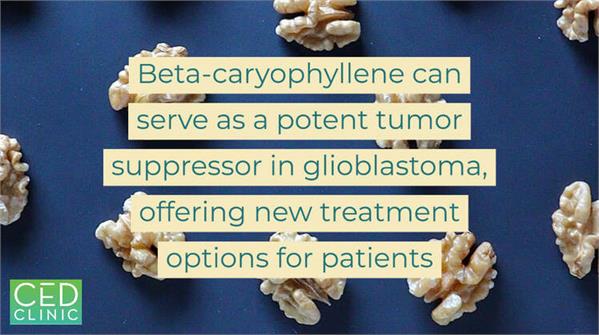Beta-Caryophyllene Inhibits Cell Proliferation through a Direct Modulation of CB2 Receptors in Glioblastoma Cells
In Summary
Glioblastoma (GBM) is an aggressive type of cancer of the brain and spinal cord, arising from cells called astrocytes, which normally support and nourish neurons. Currently, GBM treatment includes primary therapy, which is surgical removal of the tumor, followed by adjuvant therapy, which are radiotherapy and administration of the chemotherapy drug temozolomide. Despite this intensive treatment regimen, the median survival of patients remains at 5 years following initial diagnosis. Thus, new therapeutic strategies to improve disease prognosis as well as patients’ quality of life are greatly needed.
Recently, scientists have found evidence that Beta-caryophyllene (BCP), a constituent of the plant cannabis can serve as a potent tumor suppressor in glioblastoma, controlling both the rampant tumorous cell proliferation and inflammatory reactions characteristic of this disease. In particular, using two cell lines, one derived from a human glioblastoma and one derived from human glioma stem-like cells, researchers showed that treatment with BCP reduced the viability, inhibited the proliferation, and promoted the death of cancerous cells. Additionally, they also demonstrated that BCP treatment reduced the production of cytokines, pro-inflammatory agents through interfering with a signaling cascade involving various receptors and protein complexes in the brain. When the cannabinoid receptor type 2 (CB2) was blocked in experiments, those effects were lost, proving that BCP’s mechanism of actions in glioblastoma largely relies on its activation of this known target.
In my opinion, through this study, not only do the scientists shed light on a potential application of the cannabinoid Beta-caryophyllene in glioblastoma treatment, but they also open up the possibility of application of similar cannabinoids in therapy for different cancers.

